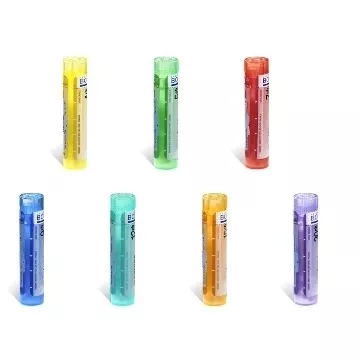

What is dry eye?
Dry eye is a condition in which the eyes do not produce enough tears, or the tears evaporate too quickly, resulting in insufficient lubrication and hydration of the eye surface. This can lead to irritation, burning and persistent discomfort.
What causes dry eyes?
The causes of dry eye are varied and can include:
What are the symptoms of dry eyes?
Common symptoms of dry eyes include:
How is dry eye diagnosed?
Dry eye is diagnosed by an ophthalmologist, who may use several tests to assess the quality and quantity of tears produced. These tests include the Schirmer test, fluorescein staining and tear film break-up time.
What treatments are available for dry eye?
There are several treatment options for dry eye:
Can dry eyes be prevented?
Although dry eyes cannot always be prevented, there are a number of measures that can help reduce the risk:
How to choose artificial tears for dry eyes?
When choosing artificial tears, it's important to consider :
What role does diet play in managing dry eyes?
A balanced diet can help manage dry eyes. Including foods rich in omega-3 fatty acids such as oily fish, flaxseed and walnuts can improve tear quality. Drinking enough water is also crucial to keeping eyes properly hydrated.
What are the long-term effects of untreated dry eye?
Untreated dry eye can lead to serious complications, including damage to the surface of the eye. These lesions can manifest as superficial punctate keratitis, corneal ulcers and corneal scarring, which can impair vision. Persistent dryness can also lead to chronic inflammation, increasing the risk of eye infections.
What's the difference between dry eye and other eye conditions?
Dry eye is distinguished from other eye conditions by its origin in the production and quality of tears. Unlike conditions such as conjunctivitis or glaucoma, dry eye is specifically due to an imbalance in the tear film. Symptoms may overlap, but accurate diagnosis by a healthcare professional is essential for appropriate management.
Can contact lenses aggravate dry eyes?
Yes, prolonged contact lens wear can exacerbate dry eyes. Lenses can absorb moisture from the eyes, reducing natural lubrication. Dry eye sufferers are advised to use lenses specially designed for better hydration, or to limit the amount of time they wear their lenses.
Do hormonal changes affect dry eyes?
Hormonal changes play a significant role in the development of dry eye, particularly in women. Hormonal fluctuations associated with menopause, pregnancy and the use of oral contraceptives can reduce tear production and alter tear composition. Menopausal women are particularly susceptible to severe dry eye.
What is the link between the work environment and dry eyes?
Thework environment can have a significant impact on dry eyes. Air-conditioned offices, spaces with low humidity and prolonged exposure to computer screens all increase the risk of developing dry eye symptoms. We recommend taking regular breaks, using humidifiers and adjusting screen position to minimize eye strain.